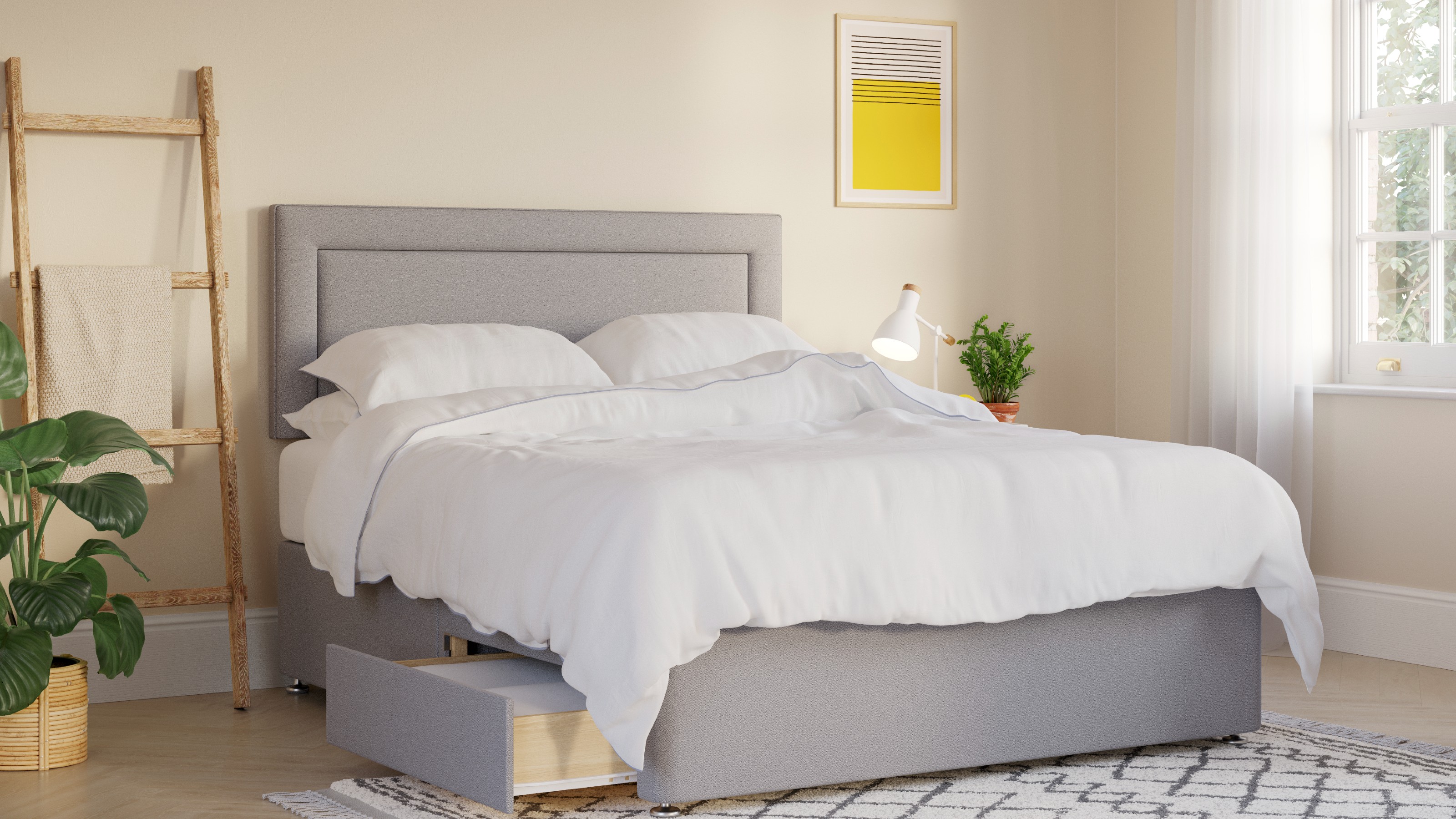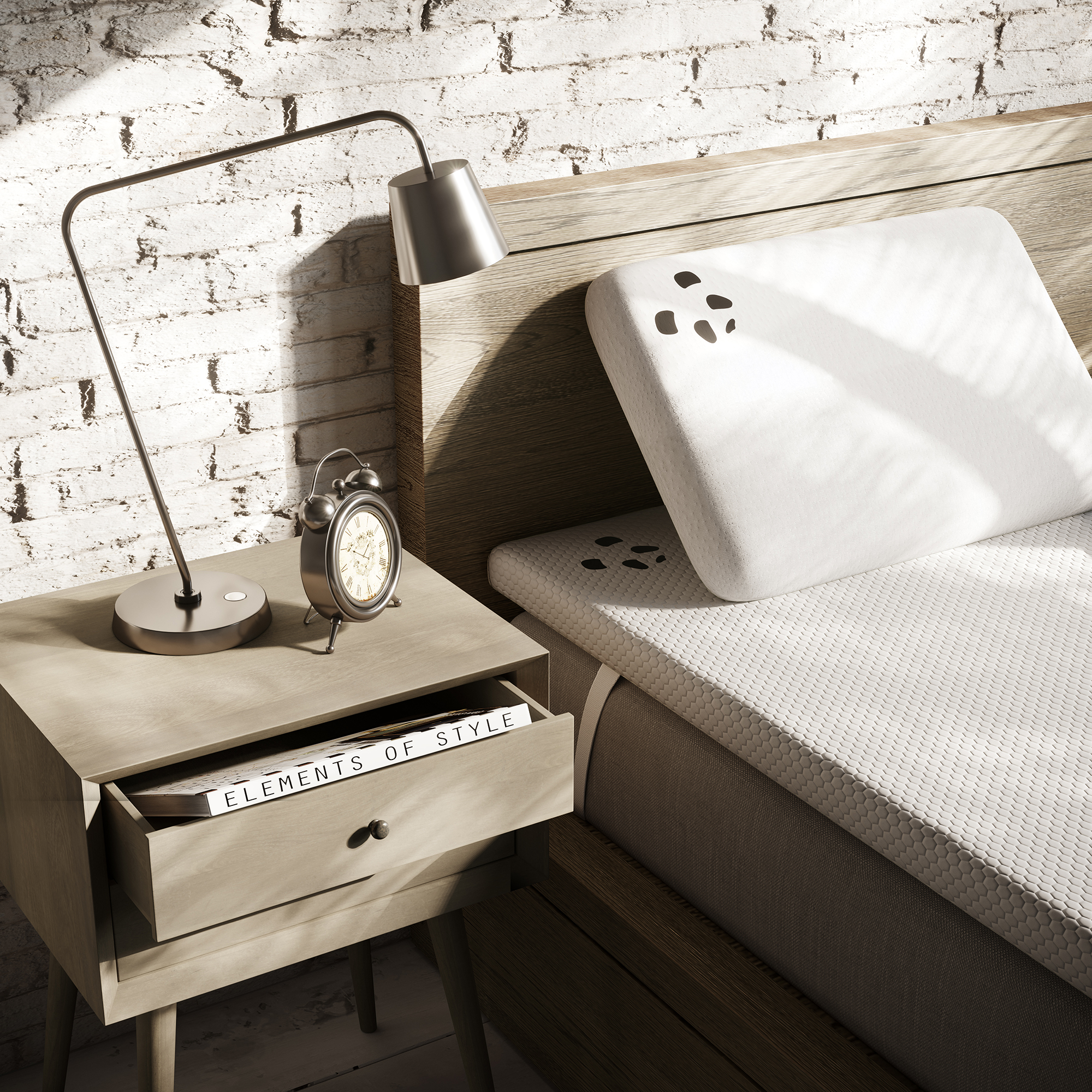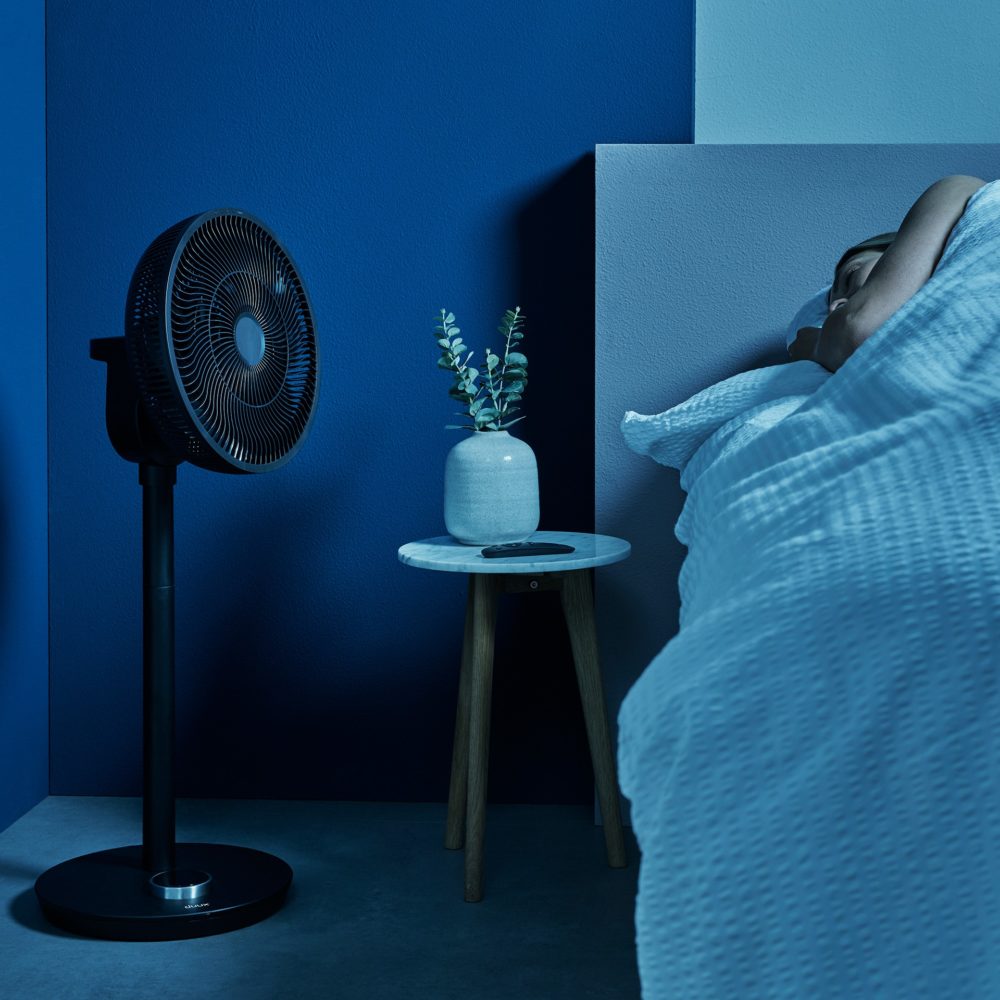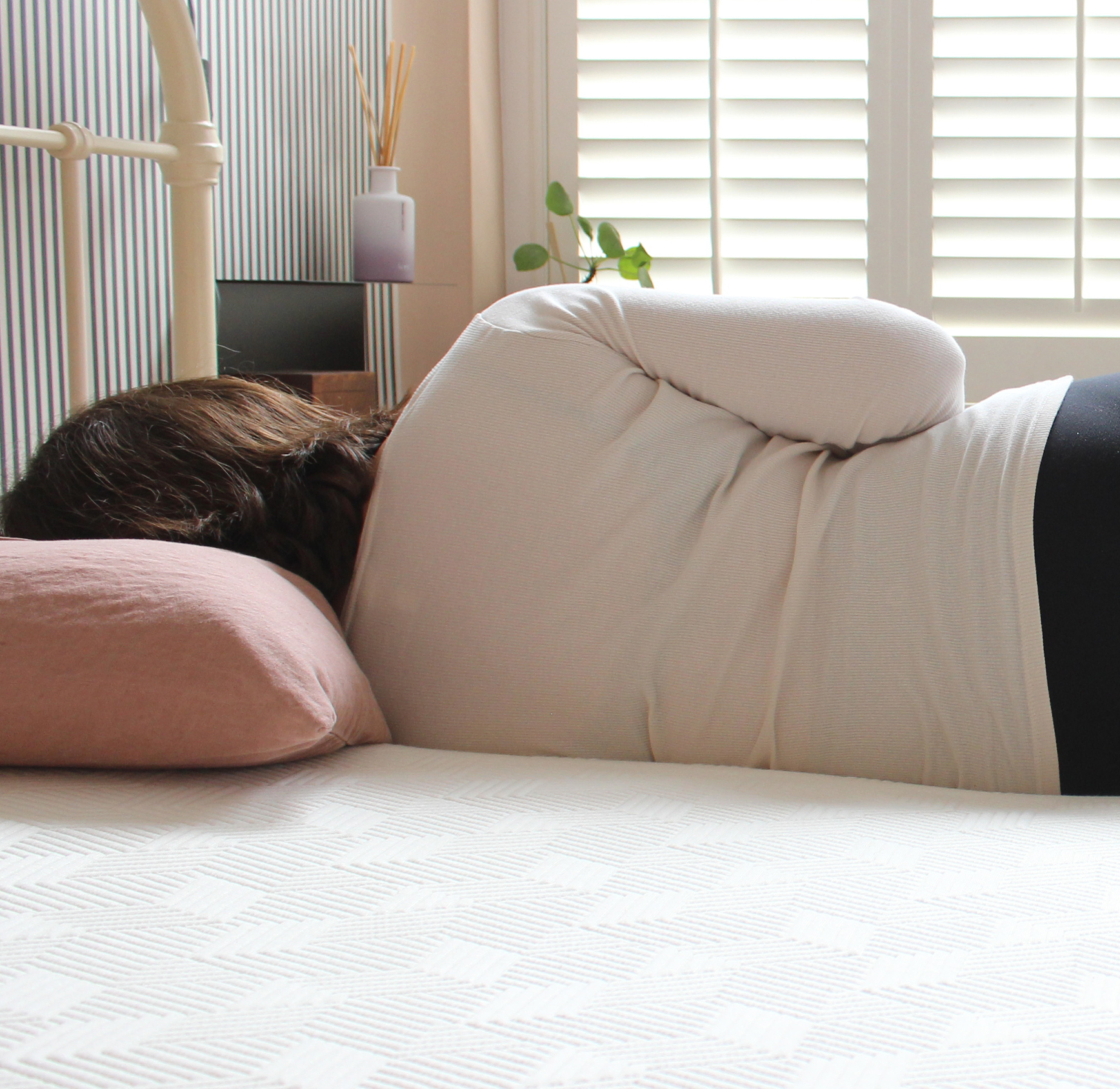5 signs you've bought the wrong mattress, according to the experts
These are the five signs you may have chosen the wrong mattress for your sleep needs


Buying a mattress is actually quite tricky, especially if buying online and not in-store, where you can try them out first. Now that you've bought one, are you tossing and turning throughout the night? Finding it hard to sleep, but not quite sure why? You've tried the magnesium drink, sleep supplements, meditation, calming music... But nothing helps.
If you have tried everything, but still can't seem to get a restful night's sleep, then the problem might be right beneath you. The likelihood is: It's not you - it's your mattress. Even the best mattress from a top brand, if not right for you, can give you a rubbish night's rest.
Having the wrong mattress for you can seriously impact your sleep quality, which in turn can have negative effects on your health, not to mention how you interact with others during waking hours. Here are the 5 signs you've bought the wrong mattress according to sleep experts from big brands, who can help you figure out what's wrong, and how to fix it.
5 signs you bought the wrong mattress
Thomas Høegh Reisenhus, TEMPUR sleep specialist and sleep counsellor, says: 'The average person spends around 26 years - or a third of their life - sleeping, yet many aren't aware of the need to invest sufficient time and money into finding the right quality sleep products for their specific needs.'
With all the choice available these days, it can be really hard to find a mattress that strikes that balance between affordability and quality. So, we asked the sleep experts from Panda London what you should be looking out for.
According to Bethany Lawrence from Panda's sleep expert panel, these are the 5 key signs to look out for, that will tell you that you've definitely bought the wrong mattress. Bethany is Panda's orthopaedic expert, so she knows how important it is for your body to have exactly the right kind of mattress to sleep on, to avoid unpleasant aches and pains.
And remember, mattresses need replacing every 8-10 years, so if you've been experiencing any of the following 5 signs and you haven't just bought your mattress, chances are that your current one is now on its last legs and needs throwing out!
Sign up to our newsletter for style inspiration, real homes, project and garden advice and shopping know-how
Your sleep is so important; follow this expert advice to find out if your mattress is a sleep aid or a sleep hindrance.
1. Pins and needles/numbness in your hands/feet/legs
Pins and needles are a horrible sensation; annoying at best, downright painful at their worst. Bethany mentions that:
'Waking up at night with those tingling pins and needles may be a sign that your mattress is too firm. Did you choose a mattress with orthopaedic grade support that promotes alignment from head to toe?'

'This ensures your weight is evenly distributed from head to toe, easing pressure points and maximising comfort. Take a look at the Hybrid Bamboo Mattress by Panda. Their OrthoAlign Foam™ does the job of providing the ideal balance of comfort and support to keep you sleeping soundly.'
So it could just be that your mattress is too firm; an easy mistake to make, especially if you bought online without trying it out first. But if you're waking with annoying pins and needles, then that definitely shouldn't be ignored - time for an upgrade.
2. Being woken easily by partner/pets
If you've chosen the wrong firmness level, then bedtime is like The Princess and the Pea; you can feel every shift in movement in the bed, swapping pleasant dreams for nightmares instead. But did you know, that some mattresses now come with what is known as 'motion control'?

Bethany explains: 'If you’re a light sleeper, you know how it feels to constantly be woken up at night by a wiggly partner or pet. Choosing a mattress with motion control will nip those wake-ups in the bud.'
This is perfect for you if you're a very light sleeper naturally, as often for couples who sleep differently, the wrong mattress may only affect one of them! Thankfully, with advanced design, there are now mattresses on the market that can solve this.
3. Overheating during the night
If you're a woman of a certain age, it can be really easy to simply write off overheating as a 'you problem.' But it could potentially be being caused, or at least exacerbated, by the wrong kind of mattress.
'Is there anything worse than night sweats? The good news is your mattress can help keep you cool from light's out.' Bethany explains how: 'The key is choosing a mattress with cooling technology.'

Simon Williams, of the National Bed Federation, also explains how the materials mattresses are made of can affect your sleep: 'Some types of mattress provide a warmer sleeping environment, most commonly those containing generous layers of foam, whether that’s memory foam, standard foam or latex foam. Whilst advances in foam technology and the use of special temperature regulating fabrics have greatly helped, some people are warmer sleepers than others so may need to choose carefully.'
Look for mattresses that have cooling technology built-in or even a cooling mattress topper, or are made with bamboo or wool.
4. Waking up with aches and pains
This is one of the main indications that something isn't right. It's an often-heard phrase when referring to neck or back pain: "I just slept on it funny." But your mattress is more likely to blame, especially if the pain eases off throughout the day, meaning it's not a pre-existing problem, but rather one that manifests overnight.
David Gibson, sleep and wellness expert and the founder of The Sleep Site, also adds that: 'Typically, the most obvious way you can track your back pain back to your mattress, is when you sleep perfectly relaxed and pain-free, and then awake in the morning with pain in the lower back or your neck or shoulders (or all three.) Early morning joint stiffness can also be a sign that all is not well with your mattress.'

From a scientific point of view, Bethany explains that: 'If your mattress is either too firm or too soft, you could be waking up with niggling aches and pains; this is either down to lack of support or your spine hyperextending due to not having enough “give” in your mattress.' As an osteopath, Bethany recognises how dangerous this could be for your spine in the long term.
5. Not getting quality sleep
Although obvious, this is another major sign that you and your mattress are not getting on. Sometimes, even though you may not have the other symptoms like overheating or aches and pains, you find that you just can't get comfy at night, and struggle to fall and/or stay asleep.
As David Gibson describes it: 'Frequent nightly interruptions can also be a sign that you need a new mattress, as well as tossing and turning to find a comfortable spot when normally your sleep is calm and restful.'

Bethany knows that 'getting a good night's sleep is one of the best ways to take care of your well-being, and having a quality mattress is the best place to start.' If your mattress is just downright uncomfortable, then it's time to start from scratch: 'Other factors to take into account when considering choosing the perfect match are your sleeping position, age and weight, which can affect what is the best mattress for you,' Bethany explains. 'And so, do you go for soft or firm? This is down to personal preference. Sleeping surfaces can be a trial and experience.'
Unfortunately, this is very true, especially if you have just bought a mattress online and it turns out to be too firm, or too soft. Thankfully, many brands offer a 100-night trial, so even if you haven't tried the mattress in-store, you still have a window of time where you can decide if it's the right mattress for you or not.
FAQs
How to tell if my mattress needs replacing?
Aside from the above 5 key signs, there's another, much easier way to tell if your mattress is way too soft, or is simply far too old and needs replacing.
David Gibson, sleep and wellness expert and the founder of The Sleep Site, recommends the following: 'One way of checking if your mattress needs replacing is to sit on the very edge of it. Then if it collapses by more than 50% it needs to be replaced.'
This is a simple and quick way to check if your mattress has become a bit sad and saggy over the years. We go into more detail in our guide to How often should you change your mattress? and also How long do memory foam mattresses last?.
When should I throw away my mattress?
In general, a good-quality mattress has an expected lifespan of roughly 8 to 10 years. That's a rough estimate. However, a mattress should be kept no longer than 10 years, for both hygiene reasons, and because of the natural wear and tear of the mattress over time.
We've outlined how to get rid of a mattress when it's time to replace yours.
Look out for these key signs, which will indicate that it's time to buy a new mattress:
- You're getting regular pins and needles/numbness in your hands, feet and legs
- You're woken every time your partner or pet moves beside you
- Overheating during the night, inability to cool off again
- Waking up with aches and pains that get better as the day progresses
- You're not getting quality sleep on a regular basis
If you're experiencing any of these problems, chances are your mattress just isn't right for you, or it has come to the end of its lifespan, so it's time to re-invest in a lovely brand new one.
For excellent tips and our own recommendations, check out our onsite mattress guides before browsing the web for your perfect mattress.

After graduating from Durham University in 2020, Olivia studied Modern Languages & Cultures, specifically French and German. Whilst at university, Olivia wrote reviews of student theatre pieces for various university publications, as well as writing voluntarily for a digital magazine during the pandemic. It was during this time that she discovered her love of writing reviews, mainly because she enjoys creating content that is helpful and informative for other readers.